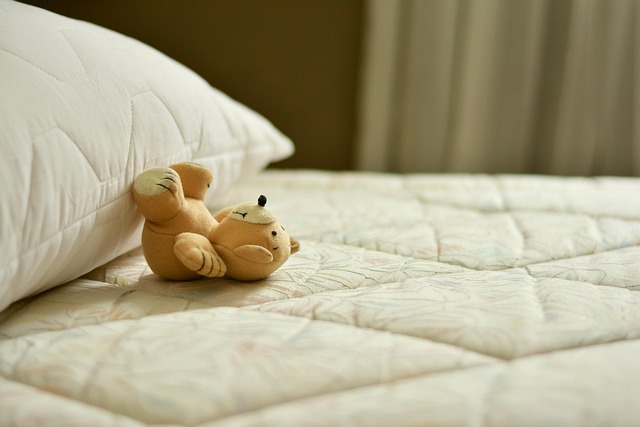In today’s overstimulated world, quality sleep is often sacrificed, yet it’s one of the most critical components of mental, emotional, and physical health. Establishing healthy bedtime routines and practicing good sleep hygiene helps you create a more consistent sleep schedule, improve sleep quality, and wake up feeling refreshed and energized.
This guide walks you through evidence-based tips to enhance your sleep, optimize your bedtime routine, and understand how much sleep you really need at every stage of life.
What Is Sleep Hygiene?
Sleep hygiene refers to the set of habits and environmental factors that influence your ability to fall asleep, stay asleep, and wake up feeling restored. Poor sleep hygiene like irregular bedtimes, excessive screen use, caffeine late in the day, or an uncomfortable sleep environment can disrupt your circadian rhythm and impact every area of your health.
Why Your Bedtime Routine Matters
Having a consistent, calming bedtime routine trains your brain and body to wind down in preparation for sleep. Think of it as a psychological trigger that transitions you from alert mode into rest mode. A well-designed bedtime routine can:
-
Reduce night time anxiety and racing thoughts
-
Shorten the time it takes to fall asleep
-
Improve the depth and continuity of sleep
-
Enhance morning energy and alertness
How Much Sleep Do You Need? (By Age Group)
According to the National Sleep Foundation, sleep requirements vary based on age. Getting the right amount of sleep for your age is essential for cognitive function, immunity, emotional regulation, and physical health.
| Age Group | Recommended Sleep Duration |
|---|---|
| Newborns (0–3 months) | 14–17 hours per day |
| Infants (4–11 months) | 12–15 hours |
| Toddlers (1–2 years) | 11–14 hours |
| Preschoolers (3–5 yrs) | 10–13 hours |
| Children (6–13 years) | 9–11 hours |
| Teenagers (14–17 yrs) | 8–10 hours |
| Adults (18–64 years) | 7–9 hours |
| Older Adults (65+) | 7–8 hours |
While individual needs can vary slightly, regularly getting less sleep than recommended can result in cumulative sleep debt, leading to fatigue, poor concentration, mood issues, and increased health risks.
Steps to Build a Healthy Bedtime Routine
-
Set a Fixed Sleep and Wake Time
Consistency strengthens your circadian rhythm. Try to go to bed and wake up at the same time daily even on weekends. -
Limit Screen Time Before Bed
Shut down electronic devices at least an hour before sleep. Blue light emitted by phones, tablets, and TVs delays melatonin production and keeps the brain stimulated. -
Develop a Wind-Down Ritual
Use the last 30–60 minutes of your evening for calming activities:
-
Reading a book
-
Practicing gentle stretching or meditation
-
Listening to soothing music
-
Taking a warm bath or shower
-
Avoid Stimulants and Heavy Meals
Limit caffeine after mid-afternoon and avoid eating heavy or spicy meals within two hours of bedtime. Alcohol may make you feel sleepy initially, but it disrupts deep sleep cycles. -
Create a Relaxing Sleep Environment
-
Keep your bedroom cool (between 60–67°F or 16–19°C)
-
Use blackout curtains or an eye mask to block light
-
Reduce noise with a fan, white noise machine, or earplugs
-
Choose a supportive mattress and soft, breathable bedding
-
Use Light Strategically
Expose yourself to natural light in the morning to reset your biological clock. In the evening, dim the lights and reduce stimulation to promote melatonin production.
Common Sleep Hygiene Mistakes to Avoid
-
Staying in bed when you can’t sleep – Get up and do something calming in another room if you’re awake for more than 20–30 minutes.
-
Napping too late in the day: Afternoon naps can interfere with night time sleep.
-
Using your bedroom as an office or entertainment center – Reserve your bed for sleep and intimacy only.
-
Overusing sleep aids – Long-term use of sleeping pills or melatonin supplements can interfere with natural sleep cycles and should be used cautiously.
Lifestyle Factors That Influence Sleep Quality
Beyond your bedtime routine, several daily habits affect how well you sleep
-
Exercise regularly (ideally earlier in the day)
-
Eat a balanced diet rich in nutrients like magnesium, tryptophan, and vitamin B6
-
Practice daily stress management techniques like journaling, meditation, or deep breathing
-
Avoid excessive alcohol or nicotine, especially in the evening
When to Seek Professional Help
If you still struggle with poor sleep after implementing these strategies, you may be dealing with an underlying sleep disorder, such as
-
Insomnia
-
Sleep apnea
-
Restless leg syndrome
-
Delayed sleep phase disorder
Consulting with a sleep specialist or a licensed healthcare provider can help you identify root causes and appropriate treatments, including behavioral therapy or medical interventions.
Developing healthy bedtime routines and improving sleep hygiene can be life-changing. By giving your body and brain the structure and environment they need to relax, you can restore restful sleep, improve daytime performance, and safeguard your long-term health. Sleep isn’t a luxury it’s a vital biological need.
Begin with one or two small changes tonight, and build gradually. With patience and consistency, better sleep is not only possible it’s sustainable.


